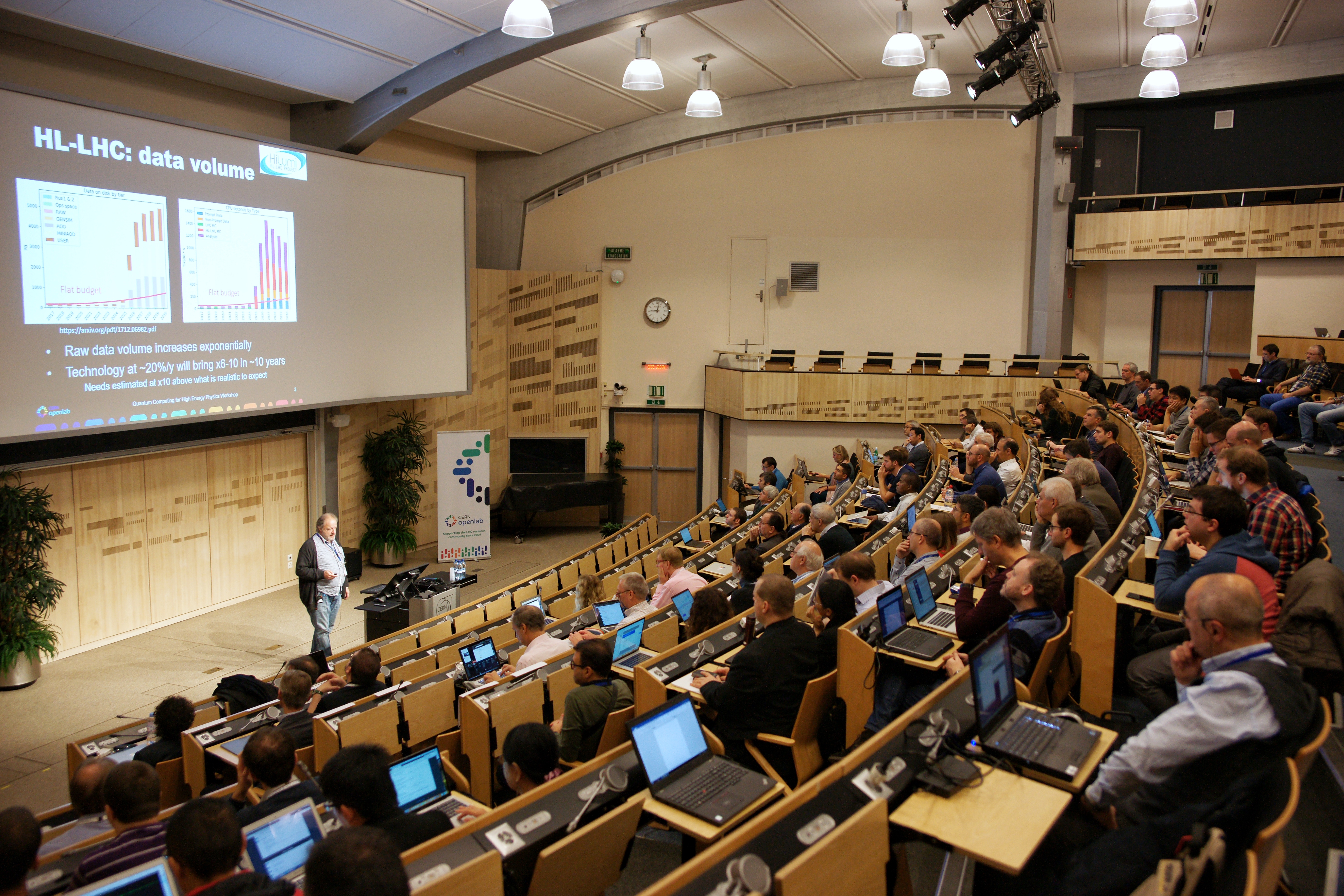This article was originally published on the CERN openlab website.
Over 400 people followed the workshop, which provided an overview of the current state of quantum-computing technologies. The event also served as a forum to kick-off discussion of which activities within the high-energy physics (HEP) community may be amenable to the application of quantum-computing technologies.On 5-6 November, CERN hosted a first-of-its kind workshop on quantum computing in high-energy physics. The event was organised by CERN openlab, a unique public-private partnership CERN runs with leading ICT companies to accelerate the development of computing technologies needed by the LHC research community.
The ambitious upgrade programme for the Large Hadron Collider (LHC) will result in significant ICT challenges over the next decade and beyond. It is therefore vital that members of the HEP research community keep looking for innovative computing technologies, so as to continue to maximise the discovery potential of the world-leading research infrastructures at their disposal.
“In CERN openlab, we’re always looking with keen interest at new computing architectures and trying to understand their potential for disrupting and improving the way we do things,” says Alberto Di Meglio, head of CERN openlab. “We want to understand which computing workflows from HEP could potentially most benefit from nascent quantum-computing technologies; this workshop was the start of this discussion.”
Significant developments are being made in the field of quantum computing, but today’s hardware has not yet reached the level at which it could be put into production. Nevertheless, technologies related to quantum computing are among those that hold future promise of substantially speeding up computationally expensive tasks (CERN Courier November 2018 p5).
“Quantum computing is no panacea, and will certainly not solve all the future computing needs of the HEP community,” says Eckhard Elsen, Director for Research and Computing at CERN. “Nevertheless, quantum computers are starting to be available; a breakthrough in the number of qubits could emerge at any time. Fundamentally rethinking our algorithms may appear as an interesting intellectual challenge today, yet may turn out as a major benefit in addressing computing challenges in the future.”
The workshop featured representatives of LHC experiments, who spoke about how computing challenges are likely to evolve as we approach the era of the High-Luminosity LHC. There was also discussion of work already undertaken to assess the feasibility of applying today’s quantum-computing technologies to problems in HEP. Jean-Roch Vlimant provided an overview of work at the California Institute of Technology, with collaborators from the University of Southern California, to solve an optimisation problem related to the search for Higgs bosons with quantum annealing for machine learning. This work was published last year in Nature (https://doi.org/10.1038/nature24047).
Several large-scale research initiatives related to quantum-computing technologies were presented at the event, including the EU’s €1-billion Quantum Technologies Flagship project. A very large initiative has also been launched in the US; presentations were given of ambitious programmes such as the Northeast Quantum Systems Center at Brookhaven National Laboratory and the Quantum Science Program at Fermi National Accelerator Laboratory (Fermilab), which includes research areas in superconducting quantum systems, quantum algorithms for HEP, and computational problems and theory.
Perhaps most importantly, the workshop brought members of the HEP community together with leading companies working on quantum computing technologies. Intel, IBM, Strangeworks, D-Wave, Microsoft, Rigetti, and Google all presented their latest work in this area at the event.
“Now is the right time for the HEP community to get involved and engage with different quantum-computing initiatives already underway, fostering common activities and knowledge sharing,” says Federico Carminati, CERN openlab CIO and chair of the event. “With its well established links across many of the world’s leading ICT companies, CERN openlab is ideally positioned to help drive this activity forward. We believe this first event was a great success and look forward to organising future activities in this exciting area.”
Recordings of the talks given at the workshop can be found here: http://cern.ch/go/Wvh6.

